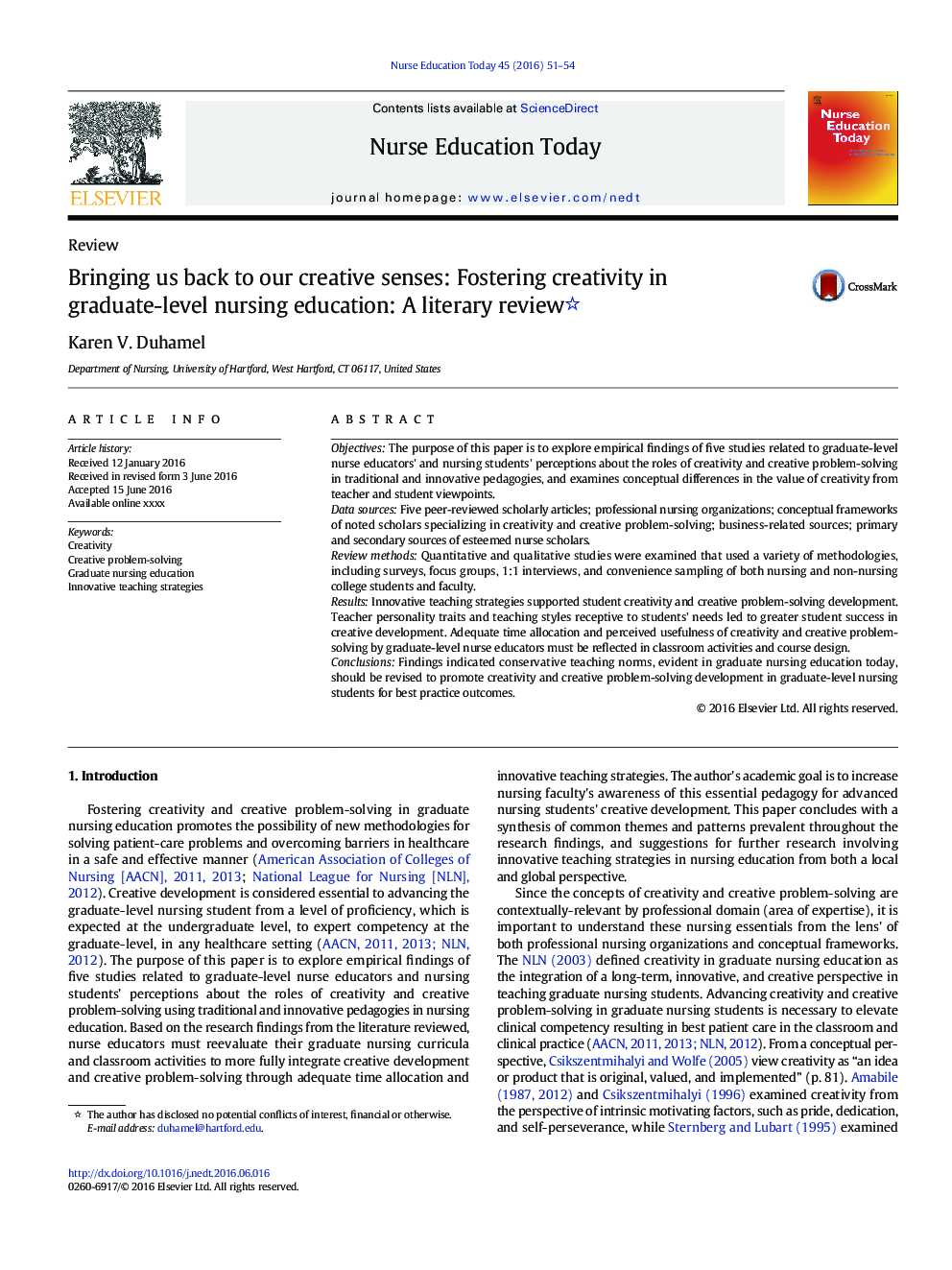| Article ID | Journal | Published Year | Pages | File Type |
|---|---|---|---|---|
| 367812 | Nurse Education Today | 2016 | 4 Pages |
•Creative development in graduate nursing education improves patient care.•Creative development advances the proficiency skill-set of the graduate-level nurse.•Nurse educators must integrate creative development into graduate nursing curricula.•Inadequate time allocation and devaluing creativity are educational barriers.•Nurse educators struggle in understanding creative development in higher education.
ABSTRACTObjectivesThe purpose of this paper is to explore empirical findings of five studies related to graduate-level nurse educators' and nursing students' perceptions about the roles of creativity and creative problem-solving in traditional and innovative pedagogies, and examines conceptual differences in the value of creativity from teacher and student viewpoints.Data sourcesFive peer-reviewed scholarly articles; professional nursing organizations; conceptual frameworks of noted scholars specializing in creativity and creative problem-solving; business-related sources; primary and secondary sources of esteemed nurse scholars.Review methodsQuantitative and qualitative studies were examined that used a variety of methodologies, including surveys, focus groups, 1:1 interviews, and convenience sampling of both nursing and non-nursing college students and faculty.ResultsInnovative teaching strategies supported student creativity and creative problem-solving development. Teacher personality traits and teaching styles receptive to students' needs led to greater student success in creative development. Adequate time allocation and perceived usefulness of creativity and creative problem-solving by graduate-level nurse educators must be reflected in classroom activities and course design.ConclusionsFindings indicated conservative teaching norms, evident in graduate nursing education today, should be revised to promote creativity and creative problem-solving development in graduate-level nursing students for best practice outcomes.
